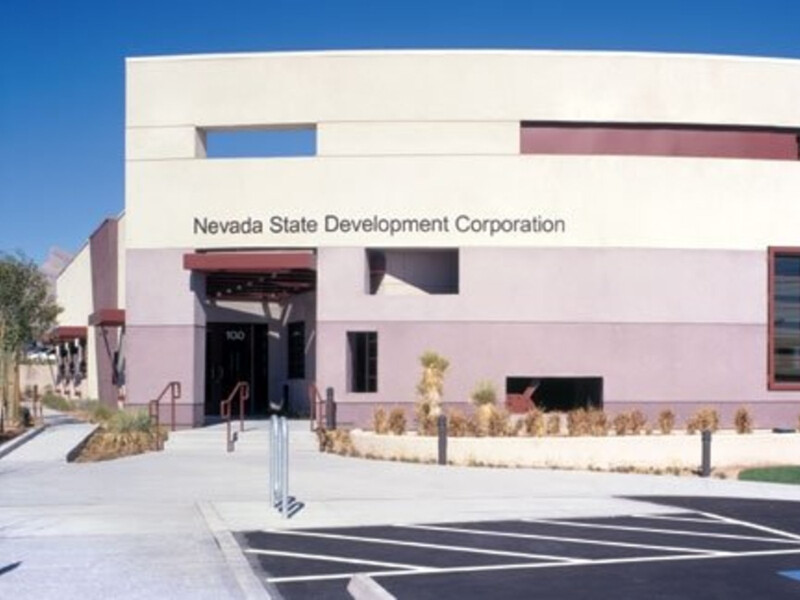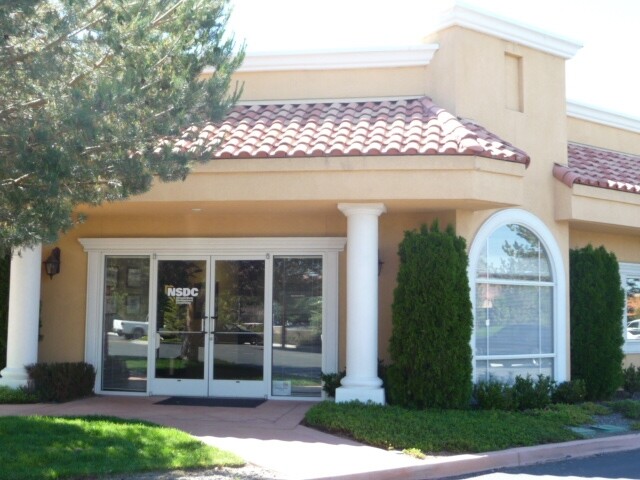Loan Delinquecies & Defaults
Over the past few years, Nevada State Development Corporation has seen proven business owners struggle with cash flow due to the impact of the recession. If your company is facing this situation – you are not alone. NSDC has worked diligently with many of our borrowers toward mutually beneficial solutions to their repayment challenges. Borrowers that have trouble meeting their debt obligations for their SBA loan should contact their CDC (Certified Development Company) and lender as early as possible to discuss the situation and possible options available to assist them. We believe that keeping communication channels open yields the best results for the borrower as well as the lender. Here are some frequently asked questions in reference to a loan becoming delinquent or defaults:
Is There A Grace Period On My Loan?
Your loan is due on the first business day of every month. The terms of your loan agreement require the payment to be made by Automated Clearing House (ACH) transfer from your bank to the Central Servicing Agent (CSA). If your payment is rejected when the ACH transaction occurs, you may wire the funds as an alternative. To avoid any late fees, your loan payment must be posted at the CSA by the 15th of the month.
What Is The Role of A CDC (Certified Development Company)?
CDCs are contracted by the SBA to serve as an intermediary for your loan. When you secured your loan, the second trust deed portion was packaged, underwritten and funded with NSDC’s management. After your loan funds, NSDC is responsible for monitoring your repayment and loan covenant(s) compliance. Your loan is an obligation to the U.S. Small Business Administration (SBA), an Agency of the U.S. Government – not NSDC. NSDC makes recommendations to the SBA on actions associated with your loan which SBA reviews and either approves or denies.
What Is Loan Deferment?
A deferment typically provides a lower monthly payment amount to provide cash flow relief. The principal and interest obligations remain in force, but the payment amount is adjusted for the “deferment period”. When borrowers provide NSDC with financial statements (tax returns, personal financial statements, interim business financials, and other requested information) that indicate their business is operating with lower revenues and tighter cash flow than historically, a loan deferment may be offered. When the deferment period ends, the “catch up period” commences and the monthly payments increase. The full amount of the deferment must be repaid within 5 years, or no later than the end of the existing term of the loan if the loan has a maturity date of less than five (5) years remaining.
What Is A Short Sale?
When a property is sold for less than what is owed on it, it is referred to as a short sale. All owners, lenders, and/or parties holding a valid lien on title must agree to the transaction before the sale can occur. The borrower remains obligated for the outstanding balance owed after the sale is completed and works with the lender(s) to develop a repayment plan for the deficiency balance remaining. For example, if a borrower’s debt on a building is $500,000 and the building is sold for $450,000; the borrower remains obligated on the outstanding $50,000 loan balance and may repay that amount either in a lump sum or over a period of several years.
What Is A Foreclosure?
When a borrower does not pay as agreed to through their loan instruments, the lender has the right to sell the property without the borrower’s consent through a foreclosure process. Foreclosure processes vary from state to state.
If the property is located in Nevada, a borrower will typically receive notice through a “Notice of Default” filing that their loan is past due and/or completely due and payable within a short period of time. A Notice of Default is a document of public record that identifies that a loan is past due. Borrowers should immediately contact their lender if this occurs to develop alternative strategies to foreclosure that will not impact their credit history and ability to secure financing in the future as well as work toward keeping the property from default.
If a borrower does not cure their default, then the lender may have a “Notice of Sale” filed. A Notice of Sale is a document of public record which identifies a date and place (typically a courthouse, civic center, etc.) where the property will be sold on behalf of the foreclosing lender. Once a foreclosure sale occurs, the property immediately transfers ownership and the borrower is no longer an owner of the property, although the debt still exists.
If the property is sold at the foreclosure sale for a value less than what the borrower owes on the property, the borrower remains liable for the outstanding loan balance to all lenders and the borrower typically no longer has rights to the property depending upon the type of foreclosure action filed.We strongly recommend that borrowers work with their lenders to avoid this situation as it has long term credit implications that will impact their ability to conduct business for many years.
If I Default On My Loan, What Will Happen?
When you received your SBA loan, you agreed to repay the entire balance. Most SBA loans have several “obligors” or “guarantors” that signed the note. Each obligor or guarantor is solely responsible for the entire outstanding balance of the loan. For example, if two business partners secured a loan for $100,000 and the loan default, both partners are responsible for the outstanding balance until the loan is paid off. The debt obligation is not divided among responsible parties. If the debt is not repaid or compromised, the loan file is referred to SBA and then to the U.S. Department of Treasury (DOT). DOT has the right to withhold future income tax refunds, social security benefits, veteran benefits as well as the right to impose future wage garnishments, and other means of collection available to them including legal action until the full balance of the loan is repaid. These actions may be imposed on all obligors and guarantors on the note. Additionally, the loan default is reported to all credit agencies which impacts credit scores and ability of obligors and guarantors on their ability to secure conventional and SBA financing into the future.
What Can I Do To Avoid These Serious Issues?
We suggest that you contact NSDC and your first trust deed holder as early as possible and work collectively toward alternatives to default and foreclosure. NSDC has the right to work with all debtors on their SBA 504 loan toward a warranted repayment strategy or compromise which is then presented to the SBA for their consideration and is then formally approved or denied. NSDC has successfully completed justifiable loan deferments as well as long term repayment strategies on outstanding loan balances after short sale or foreclosure which is manageable for borrowers and allow them to fulfill their loan obligation without impacting their long term credit.
NSDC has found over and over again that the earlier a borrower, obligor or guarantor informs us of their challenges – the better the options available for resolution. Lender(s) and borrower(s) enter into debt obligation(s) in good faith and the extension of credit is based on the promise to repay by borrower(s). It is important borrower(s) acts in good faith when negotiating solutions with your lender(s) as this allows the lender(s) to review all repayment options at the borrower(s) disposal. Keep in mind lender(s) have the same objectives a borrower(s) does – to resolve this matter in a respectful and expeditious manner to the satisfaction of all parties.
How Can I Reach NSDC?
Please contact us during our regular business hours, 8 a.m. to 5 p.m. Monday through Friday toll free in the Reno area at 1-800-726-2494 or in the Las Vegas area at 1-877-732-7101.

Helping Small Businesses Grow
Since 1981
Follow Us Online

Las Vegas Office
1551 Desert Crossing Court
Las Vegas, NV 89144
(702) 877-9111
(877) 732-7101 (Toll Free)

SBA 504 Small Business Loan Resources
______________________________